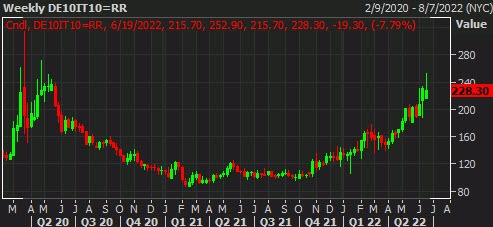The announcement of the emergency meeting today is providing some relief to European bonds to start the day but for there to be a lasting reprieve, the ECB needs to deliver and deliver big time they have to.
It has been less than a week since the ECB affirmed the end of QE and we are already here, talking about how the central bank needs figure out something else to backstop Italy.

The widening in bond spreads in the past few days has been the key topic in Europe, after the ECB failed to address fragmentation risks last week. The call for the meeting today seems to suggest that policymakers are now (about time) taking things seriously but what can they really do?
Let's take a look.
A potential solution would be to go with using reinvestments from the PEPP program to buy up Italian bonds but the amounts in play need to be stepped up. Not only that, what sort of message does that send when they are looking to put a stop to APP at the end of this month. And let's not even get started on how the optics will look like if they are to proceed with quantitative tightening.
Besides that, there is the option to go with OMTs - which were brought up during Draghi's time back in 2012. It's a stretch but one can argue that it doesn't really fit with the current economic situation and there are too many conditions attached to pursuing such an option (requiring Italy to sign up for a bailout essentially). In essence, it is politically unworkable.
Obviously, restarting QE would be the easiest solution but it is a difficult message to communicate when you are looking to tighten policy in the battle against inflation.
So, what else is left?
There is no quick and easy fix for the ECB as things stand. As such, they will likely have to introduce a new tool. Although ECB policymaker, Isabel Schnabel, did not provide much details yesterday, there is a strong message to be heard:
"Our commitment to the euro is our anti-fragmentation tool. This commitment has no limits."
Now, it remains to be seen what exactly that is but the fact that the ECB is hinting at a resolute commitment to counter fragmentation risks is an important message to heed.
I don't think we will get any detailed plans on what the ECB has in store later today. The lack of discussion on the matter last week already makes that quite clear. But one can expect policymakers to be firm on the communication that they are actually here to "close the spreads", in some roundabout way.
That may see a short-term relief for European assets but the ECB has to come up with a game plan quick, if they are to see that reprieve hold in the weeks/months ahead.



